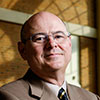This article is more than 5 years old.
The spring 2018 meeting of the Association of Southeast Research Libraries (ASERL) was held in Knoxville and hosted by the University of Tennessee. The focus of the meeting was how libraries contribute to student success and each dean/director was invited to bring a “student success librarian.” Meghan Webb represented ZSR and our work in this area. The agenda was divided into two tracks for parts of the meeting with joint presentations for the reminder of the meeting. The weather (heavy rains from tropical storm Alberto) also impacted the meeting with one speaker unable to attend and several attendees having a challenging time arriving.
From the student success sessions, I came away with the following points:
- Everyone knows that library use, especially in the first year, improves GPA
- Assessing the Library’s impact is challenging
- Decentralized data and privacy issues add to this assessment challenge
- Centralized service also important to student success; UT has added “One Stop” stations in the Library that can address issues from the Bursar to Advising
One doesn’t generally consider an organizational business meeting as a highlight, but it was for me this year. First we passed ASERL’s Diversity & Inclusion statement, which I had drafted together with two other Board members (text is below). Second, I was elected as Secretary/Treasurer for ASERL. I had previously served as member-at-large on the Board.
Another piece of business discussed was the updating the ASERL BBQ guide. The meeting got a little “saucy” when the merits of BBQ sauces were discussed — Alabama white sauce was the most polarizing. For the updated version, each school was asked to review the up to three local BBQ joints on their list. For Wake we have listed Bib’s, Little Richards (now the Real Q), and Pig In-and-Out. I happen to be a fan of Camel City, but welcome your suggestions and/or updates! I plan to personally research each option.
Finally I took a couple days of vacation in western NC after the meeting. You can’t beat a view like this one from the Blue Ridge Parkway!

ASERL Diversity & Inclusion Programming Revised January 11, 2018
Values Statement E Pluribus Unum. Out of many, one. When libraries tap into the wisdom of a workforce that reflects the populations we serve, we are better able to understand and meet the needs of the students, faculty, staff, alumni, and researchers we serve. ASERL members believe we must make our workplaces, collections, and services more inclusive. ASERL libraries commit to make every employee feel welcomed and motivated to work optimally in service to our communities. We affirm that we achieve more together because of our differences, not despite them. When libraries apply this pool of knowledge — when employees are trained in team building, decision-making, problem solving, and conflict resolution — we provide better, more interesting, innovative services to each other and to our patrons. ASERL’s Commitment to Diversity and Inclusion ASERL members will strive to:
| |
|
Charge – ASERL Diversity & Inclusion Committee In early 2018, the Association of Southeastern Research Libraries will create a new standing committee focused on our commitment to Diversity and Inclusion. The ASERL Diversity and Inclusion Committee (AD&IC) will create strategies to develop diversity and inclusion in collections, programs, recruitment and retention, training, and spaces to build holistic environments that nurture and reflect the diversity of our staff and the communities we serve. The AD&IC will periodically assess member needs, the availability of relevant programs from reputable sources, and offer activity recommendations to the ASERL Board and membership. Based on member feedback, the AD&IC will implement measurable activities to benefit the membership, assess the effectiveness of the activities, and offer suggestions for future improvements. ASERL will secure sufficient resources to support these endeavors. Membership |

4 Comments on ‘Tim at ASERL Spring 2018’
I’d never heard that library use, especially in the first year, improves GPA – fun fact!
Nice post and picture! In spite of my ever-strong interest in BBQ, the bullet points on student success and this phrase captured my attention: “Diversity Is The Mix and Inclusion Is Making The Mix Work.”
I am happy to know that ASERL’s Diversity & Inclusion statement passed, and that you were part of the drafting team. I am intrigued by the idea of the One Stop station at UT that can address a wide range of student inquiries–how helpful! And finally, a thought about the best WSNC BBQ: might we need to have samples at the ZSR BBQ vs Barbeque on July 6th for a taste-off?! 😉
Thanks for sharing the work of the ASERL D&I Committee. It provides a great framework for moving libraries forward. It sounds like a wide ranging series of topics were attacked, from student success to barbecue!